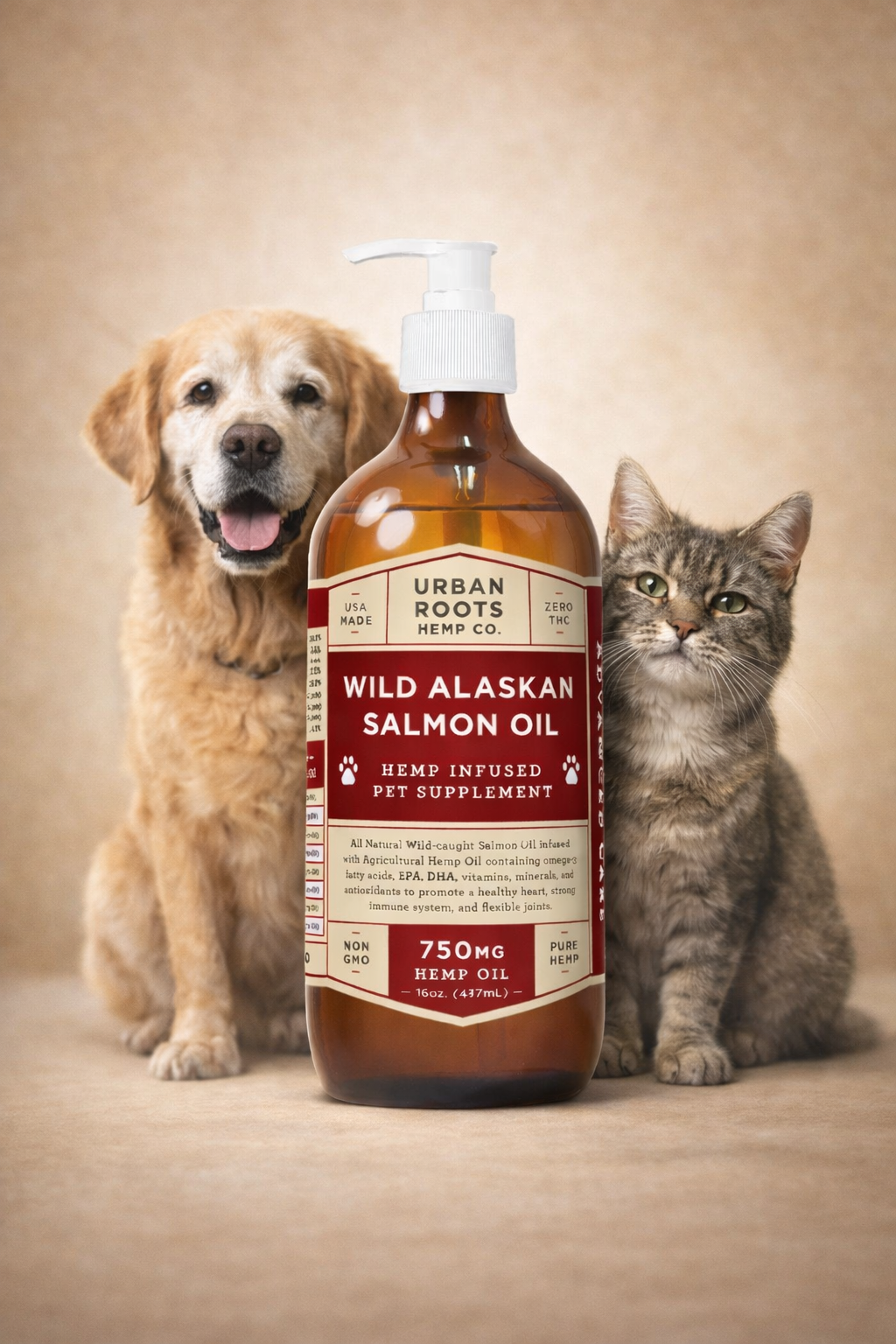CBD for Dogs with Digestive Problems: Give Your Furry Friend Some Relief


As we all know, digestive issues are not fun or pleasant to experience. As many dog owners know, our animals are just as susceptible if not more so to experiencing a wide range of stomach problems. Whether it’s diarrhea, vomiting, or a lack of appetite, our little furry friends can be affected by the very same problems that humans can. And no one likes to see their pets in pain or discomfort.
Digestive disorders are probably among the most common reasons pet owners take their animals to the vet. Many dogs have sensitive stomachs and a change in the type of food they eat, the brand of food, how much they eat, if they eat too quickly, or even the time of day can set off gastrointestinal problems. Your canine may also suffer from chronic stomach issues like inflammatory bowel disease.
The good news is that, whatever the cause, there is evidence that CBD may be effective at relieving dog digestive problems and helping your pet live a more comfortable life.
How to Know If Your Dog Has Digestive Problems
The issue with many pet health conditions is that they can’t tell us what is wrong or where it hurts. What makes matters even worse is that animals, especially pack animals like dogs, have a natural instinct to hide or mask pain and discomfort. This tendency is left over from their days in the wild when any sign of weakness would make them susceptible to predators or even at risk of being left behind by the pack.
The one good thing about digestive problems in dogs is that the symptoms are usually relatively easy to spot. It’s up to you to watch out for the telltale signs like vomiting and diarrhea, but also for the following symptoms of gastrointestinal issues:
- Changes in appetite and/or water intake
- Sensitivity to being touched in the abdomen
- Constipation or straining while pooping
- Excessive gas
- Weight loss
- Dry heaving or gagging
- Drooling or “swallowing air” or “air licking”
- Changes in bowel movements including frequency or time of day
- Suddenly having accidents in the house
- Fatigue or other changes in desire to do things
- Excessive or unusual stretching of the abdominal area
If any of these symptoms are particularly severe, or if you notice your dog has a swollen or hard belly, severe abdominal pain, blood in their stool or vomit, or constant dry heaving after a meal or exercising, it’s best to take them to the vet as soon as possible. For milder, non-life threatening symptoms that nonetheless cause you pet discomfort and pain, CBD products might be a viable treatment option.
CBD and Digestive Issues in Dogs
Most of our knowledge about CBD and digestion is related to human digestive systems. However, because we are not all that different from our four legged friends, many of the benefits that CBD products deliver for humans are equally delivered for our dogs.
Although the exact root causes are not completely understood, conditions like diarrhea and constipation are often the result of inflammation in your dog’s gut, large intestine, and other organs throughout the digestive tract. CBD is thought to possibly help certain digestive issues because of its widely reported ability to alleviate inflammation itself.
Inflammation and Canine Digestion
Just like in humans, inflammation is caused by your dog’s immune system and its response to perceived threats or invaders. The reason CBD is thought to help in both humans and canines is that CB2 receptors (one of the key receptors found in the endocannabinoid system) are found throughout both of our immune systems, while CB1 receptors are found throughout out gastrointestinal tracts.
When those receptors are activated, they actually help by reducing an overactive immune response. The thing is, sometimes our bodies and our pets’ bodies react too strongly to the perceived threat and that response causes us or our furry friends discomfort. When it comes to our digestive systems, an overactive inflammatory response can cause abdominal pain, diarrhea, and other issues. By activating the CB2 receptors, CBD may help alleviate these and other digestive problems in dogs.
According to numerous pharmacological studies, there are thought to be high levels of endocannabinoids (specifically, anandamide and 2-arachidonoylglycerol), CB1 receptors, and enzymes related to the endocannabinoid system throughout the digestive tract. Studies have also shown that CB1 receptors produce the relaxation of the sphincter at the bottom of the esophagus, the inhibition of gastric motility (the movement of food through the digestive tract), and the secretion of acid.
Gastric motility is especially important here, because overactive motility can lead to diarrhea or vomiting, while underactive motility may lead to constipation or also vomiting. The job of the CBD receptors is to maintain balance, or homeostasis, so by activating the CB1 receptors in the GI tract it is thought that they produce the necessary changes to prevent digestive problems.
Although it’s not clear if CBD will treat or improve the underlying causes of your dog’s digestive sensitivity or GI tract inflammation, it may be effective at alleviating the symptoms.
CBD to Help Your Dog’s Appetite
If your dog is not only experiencing nausea or diarrhea but is also suffering from a lack of appetite, CBD products may also be able to help them. If you notice your pet starting to eat less than normal or is refusing their food, try changing up their diet and adding CBD hemp oil to their daily regimen. CBD is known for helping stimulate your pet’s appetite and can even help decrease nausea and vomiting.
Both in humans and dogs, nausea and vomiting are serious symptoms, often leading to a decreased appetite, rapid weight loss, dehydration, fatigue, and more. Instead of giving your pet acepromazine, chlorpromazine, or aminopentamide, all of which have strong and serious side-effects, give CBD a try.
How to Give CBD to Your Dog
At Urban Roots Hemp Co., we have several products that make it easy to give CBD to your pet. We offer both CBD infused salmon oil and CBD pet tinctures that deliver the positive effects of cannabidiol you’re looking for.
The majority of our customers will put a few squirts (depending on desired dosage) of the salmon oil or a few drops from the tincture on their dog’s food each day. Others will put a few drops on their canine’s treats. If your dog is a bit too picky or taste sensitive to eat food or treats with CBD, you can simply pop a few drops in their mouth.
CBD may alleviate digestive problems and make your pet feel their best. Additionally, because it has no known serious negative side effects, there is only an upside to giving it a try and finding out if it can help your animal. When combined in a supplement with highly nutritious salmon oil, CBD can become part of a healthy daily diet and routine for your pet.
If you have any further questions about how CBD may canine digestive issues, feel free to reach out!









